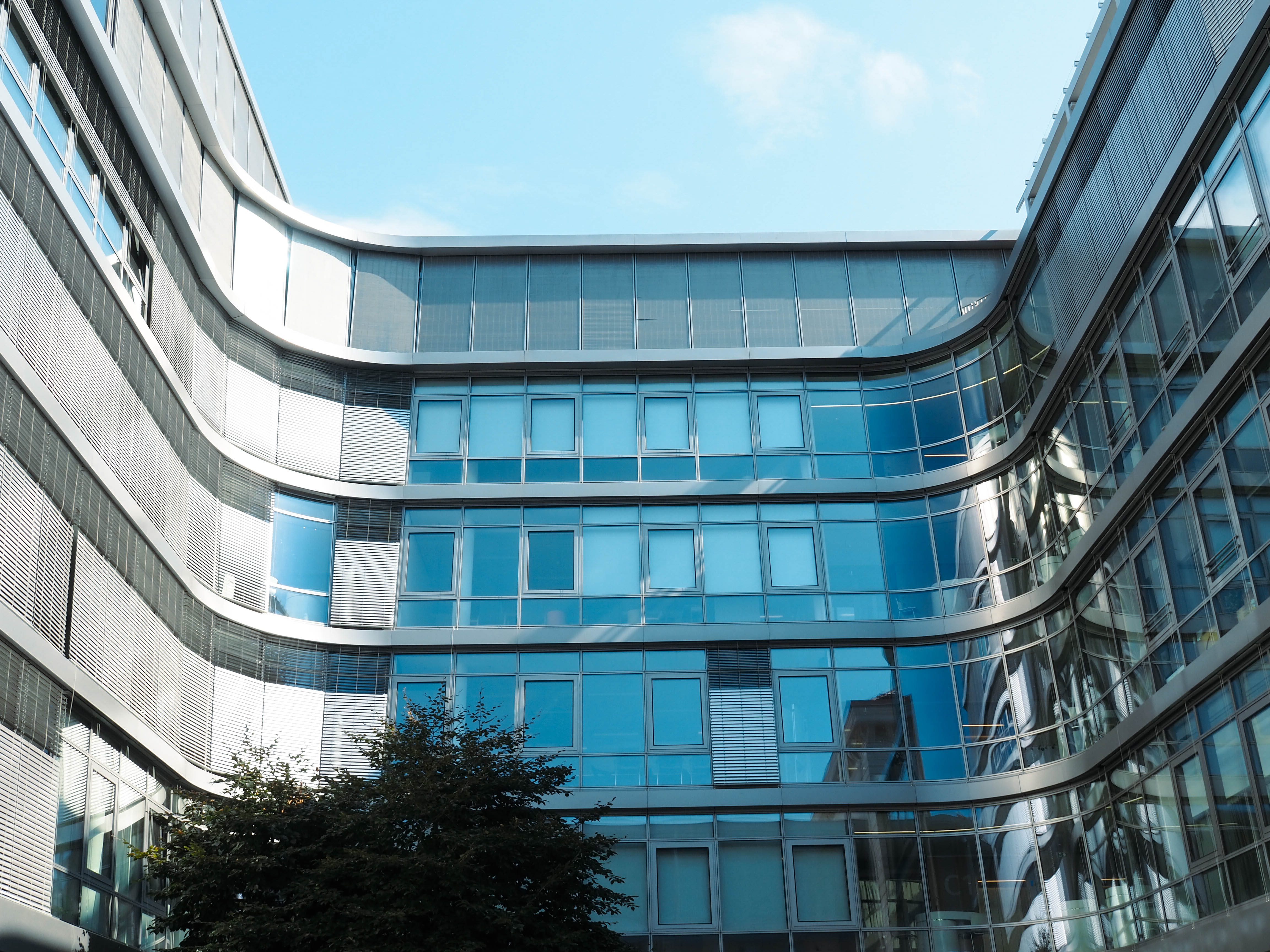Siemens Headquarters
New Headquarters Building in Munich
Siemens AG
Henning Larsen Architects, Copenhagen
2 - 9
2011 - 2015
2012 - 2016
When is a building ecological? When it uses as few resources as possible during its use. But also when it is constructed with particularly environmentally friendly materials. Siemens' new headquarters sets standards in both categories. Sustainability was an integral part of the planning from the start. This is evident in the materials used, such as steel, concrete, and glass. Only raw materials were used that consume as little energy as possible during production, transport, and later disposal.
The design of the building, its thermal insulation and shading ensure that as little energy as possible is required. A variety of additional measures reduce daily energy consumption. For example, the foundation slab – larger than a football field at 8,500 square meters – contains 70 kilometers of water pipes. Up to 100,000 liters of water are pumped through these pipes every hour, providing a balanced climate throughout the building year-round via highly efficient heating/cooling ceilings. In the so-called bivalent heat generation, heat pumps are also used as cooling machines and outdoor air and groundwater are integrated as renewable energy sources.
All façades facing the courtyards are fully equipped with highly insulating triple glazing and are slightly inclined. This allows plenty of daylight to enter the building, reducing the need for artificial lighting. Artificial lighting is provided by 7,400 LED lights, which consume about half the electricity of conventional light bulbs. Rainwater collected on the roof is used for various purposes, including toilet flushing and irrigation of the outdoor areas. A photovoltaic system on the roof generates almost a third of the required electricity. Additionally, the intelligent building control and automation system allows for further energy savings.
The new building consumes 90% less electricity and approximately 75% less water compared to the old building. The primary energy demand is now even 52% below the value required by the current Energy Saving Ordinance (EnEV). As a result, the new headquarters has been certified both nationally by the German Sustainable Building Council (DGNB) and internationally by the U.S. LEED system (Leadership in Energy and Environmental Design) with the highest Platinum level.
Siemens AG
Henning Larsen Architects, Copenhagen
2 - 9
2011 - 2015
2012 - 2016










